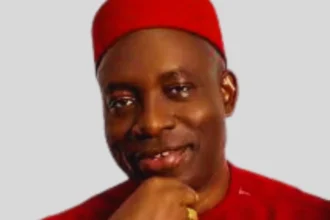In a compelling speech at the Alliance for Responsible Citizenship, British Conservative politician Kemi Badenoch cautioned that Western civilisation is facing a crisis, not of values but of confidence, which has emerged at a time when existential threats loom large.
Badenoch highlighted that while the West has long been a global leader in ideas and culture, self-doubt is eroding its foundations. She pointed out that on the political left, this uncertainty manifests as embarrassment over Western history and, in some cases, outright disdain for its cultural legacy. Meanwhile, on the right, there is growing skepticism about the West’s ability to maintain its core values, such as democracy, free markets, and the rule of law.
Citing recent surveys, Badenoch expressed alarm over the shifting attitudes of young Britons. Nearly half of young people in the UK reportedly believe their country is racist, while 60% say they are not proud to be British. Even more concerning, she noted, was that almost 40% of the fighting-age population stated they would not be willing to defend the country under any circumstances.
She warned that such disillusionment has led many young people to favor authoritarian leadership, with over half of those aged 13 to 27 agreeing that the UK would be better off under a strong leader who does not have to adhere to democratic processes.
“I understand your anger,” she said, addressing the youth, “but be careful what you wish for.”
Drawing from her own upbringing in Nigeria, a country once under military dictatorship, Badenoch recounted how promises of strong leadership led to oppressive rule, censorship, economic hardship, and the erosion of fundamental freedoms.
Badenoch made a passionate case for defending what she termed “classical liberal values,” including free markets, free speech, freedom of religion, the presumption of innocence, and equality under the law. She criticised what she described as the distractions of left-wing progressivism, including debates over gender identity, diversity, equity, and inclusion (DEI) initiatives, and climate activism, which she argued have become more about control than genuine social progress.
She also took aim at the European Convention on Human Rights (ECHR), claiming it has been weaponised in ways that undermine national identity and border security. She cited controversial legal cases, such as a man being allowed to remain in the UK due to his son’s preference for British-style chicken nuggets and a drug dealer reportedly avoiding deportation due to his child’s gender identity struggles.
“The problem isn’t our values—it’s the people interpreting them,” she asserted, suggesting that a lack of courage among lawmakers and officials has allowed the erosion of Western traditions.
Badenoch also raised concerns over national security, arguing that the West’s reluctance to invest in defense has emboldened adversarial nations like Russia, Iran, and North Korea. She contended that failure to act decisively against security threats is perceived as weakness, further endangering democratic values and global stability.
To illustrate the type of leadership she believes the West needs, Badenoch praised Katharine Birbalsingh, a school headmistress who took a firm stance on religious practices disrupting school policies. When students at her secular school attempted to impose religious-based segregation and pressure others into following specific practices, Birbalsingh banned certain prayer rituals, prioritising order and equal treatment for all students.
Facing backlash and legal challenges, Birbalsingh remained steadfast, ultimately winning her case in the High Court. Badenoch contrasted this resilience with the approach of Labour leader Keir Starmer, who took the knee during Black Lives Matter protests, a move she described as submission to public pressure rather than principled leadership.
Reflecting on the Conservative Party’s recent electoral defeat, Badenoch argued that strong leadership is essential for reversing the West’s decline. She pointed to former U.S. President Donald Trump as an example of a leader who, having identified systemic problems during his first term, could be more effective in a second term at implementing solutions.
“A country cannot succeed if its people and intellectual elite do not believe in it,” she stated, emphasising the need to combat ideological influences that weaken national pride and economic strength.
Badenoch concluded with a call to action, urging conservatives to reclaim their role as the guardians of Western civilisation and to push back against forces that seek to undermine it. “It starts by telling the truth,” she declared, warning that without decisive action, the West risks losing not just its wealth, but its culture and identity.


















